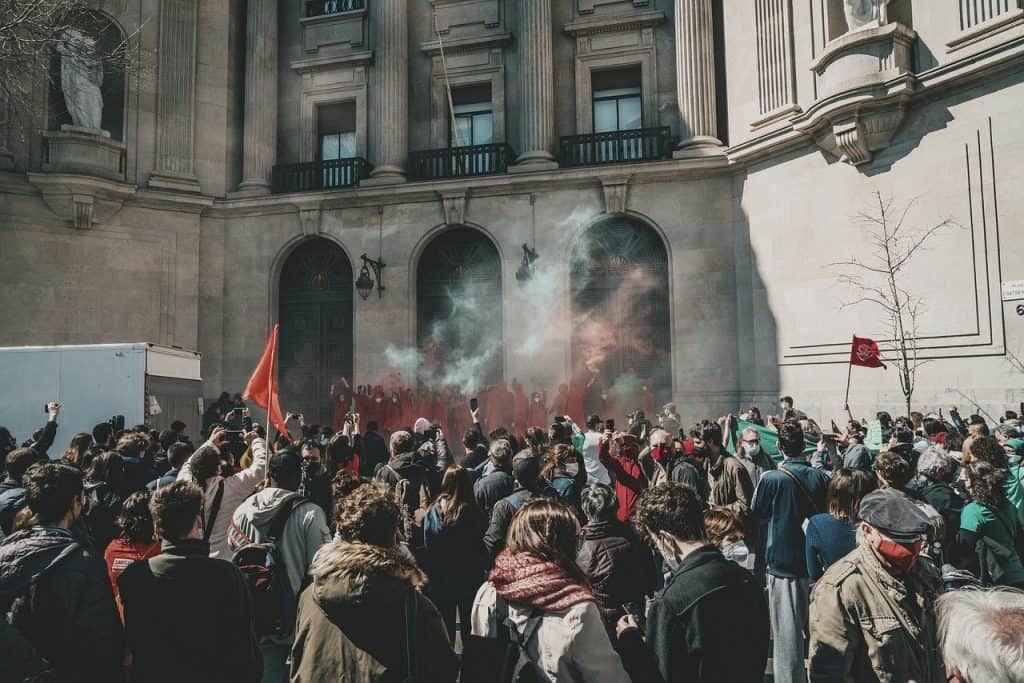ROLE OF NGOS IN PROTECTING HUMAN RIGHTS
Introduction
“The evolution of the human rights movement clearly illustrates humanity’s ongoing struggle toward creating a better world.” – Robert Alan
Human rights are commonly understood as basic, inalienable, fundamental rights which a person is entitled to (inherently) simply because she or he is a human being, regardless of their age, ethnic origin, location, language, religion, ethnicity, or any other status. We can characterize human Rights as certain ethical standards or standards that portray norms of human conduct and that are consistently secured in local and international law. All around the world, there are a lot of organizations that dedicate their efforts to protect human rights and end human rights abuses.
Non-Governmental Organizations
NGOs are one example of such organizations. “Organizations which are independent of government control are known as Non-Governmental Organizations.” Human Rights protect people against abuses by those who are more powerful and superior. The laws governing human rights and working of NGOs for the same help humans to have a dignified life.
According to the Administration and Management of NGOs (by Goel and Kumar), NGOs are active in all fields today and their services cover a wide spectrum of human welfare functions. Human rights were classified in older times as natural rights, religious rights, higher or superior human rights. Several resolutions and declarations witnessed the resolve of man to promote and secure these rights. The idea of human rights thus develops from the notion of natural rights and with modern developments, adopts new types. From the ancient time to modern times the matter of Human Rights has come a long way in its journey has not ended and there are miles to go. King John’s declaration at Runnymede in1215, the Universal Declaration of Human Rights,1948, serves like a turning stone, a beacon in the dark. Each Committee, Declaration, and Human Rights Resolution stressed the need to revitalize human society and silenced a few guidelines for the defence of human rights, but every subsequent Commission on Human Rights lamented the sad state of human rights abuses.
A modern name for charitable organisations is the Non-Governmental Organisation. The history of charitable organizations is the same as that of human society. Around the world, civil society plays an increasingly vital social and economic role. The appreciation of the important role of civil society in growth was one of the most positive moves of the 1980s. At both the local and national level, citizens build new institutions that provide for needs that are not served by either the marketplace or the public sector, to support others. The power of the voice of civil society has been working its way for more than two centuries to achieve the heights where it is now. They identify themselves as the government’s ‘third sector’ or sometimes, ‘global civil society. Non-governmental organisations are their generic name. NGOs often referred to as “private voluntary organizations,” “citizens’ associations,” “civil society organizations,” and also commonly referred to as “NPOs,” have emerged as an abbreviation for “non-profit organizations” working in global politics. Their actions are known as a phenomenon equivalent to the emergence of the nation-state and the end of the 19th century, not only at domestic but also at global levels, in re-shaping politics and economics. According to Peter Willetts’ ‘What is a Non-Governmental Organization?’ UNESCO Encyclopedia of Life Support Systems, The term non-governmental organizations was officially used for the first time in the UN Charter 1945 to differ the procedures for participation by the intergovernmental specialized agencies and by international private organizations. As per Thomas G. Weiss’, International NGOs, Global Governance, and Social Policy in the UN System, Globalism and Social Policy Programme, Article 71 formalized the irregular arrangements used by the nations to govern interactions with NGOs. Although the term was defined and incorporated by the UN Charter into international politics, no specific meaning was given at that time.
NGOs occupy an important role in global governance, but they have not been officially recognized and established as a whole until now. No study of international relations can decisively interpret the position of non-governmental organizations since the end of the Cold War and the beginning of globalization. As an integral component of international processes, non-state actors have arisen. NGOs affect several players in the international scenario through problem areas. Their position in the human rights context is most evident in terms of the density and importance of the activities of NGOs. Over the past 25 years, in particular, NGOs have contributed to international and national conferences and discussions on global issues, such as poverty eradication and the promotion of gender equality, stability, sustainable development and human capital.
According to the UN source for the 1993 Human Rights Conference in Vienna, 248 NGOs were classified in consultative status and 593 were registered as participants. However, NGO reports indicate that between 1,400 and 1,500 NGOs attended the Conference. The commonly recognized goals of genuine human rights organizations are to monitor and report government conduct on human rights, especially violations, to build pressure and create international machinery to stop violations and to hold governments accountable. NGOs work to set agendas, standards and for enforcement of HRs. There are now a large number of NGOs attempting to protect human rights in India. International amnesty today, which has also played a major role in expressing outrage and highlighting cases of abuse of human rights in India. NGOs in India have played a key role in fostering human rights understanding, defining issues related to the security and enjoyment of human rights, and pursuing reforms in legislation and procedures that facilitate their protection and enjoyment. NGOs in India, such as the People’s Union for Civil Liberties, the People’s Union for Democratic Rights, the Common Cause, the Democratic Rights Association, etc., worked to expose human rights violations and provide victims with relief. Their initiatives have made a change from advocating human rights security policies to a welcome development and in short, the need for the day to close the distance between rhetoric and fact and create a human society focused on justice and values. There are several NGOs that work locally for the defence of human rights and for the well-being of human society.
Conclusion
Sometimes, The government’s interest clashes with NGOs’ and for that to not happen government should take the lead in setting up representative platforms and processes at the federal, district and local level for government and non-governmental organizations to meet and participate in consultation to cooperate on planning projects so that there is more synergy rather than competition. A robust legal and institutional structure is needed for the GOVT-NGO relationship.
Author(s) Name: Yashika Soni (Dharmashastra National Law University, Jabalpur)

